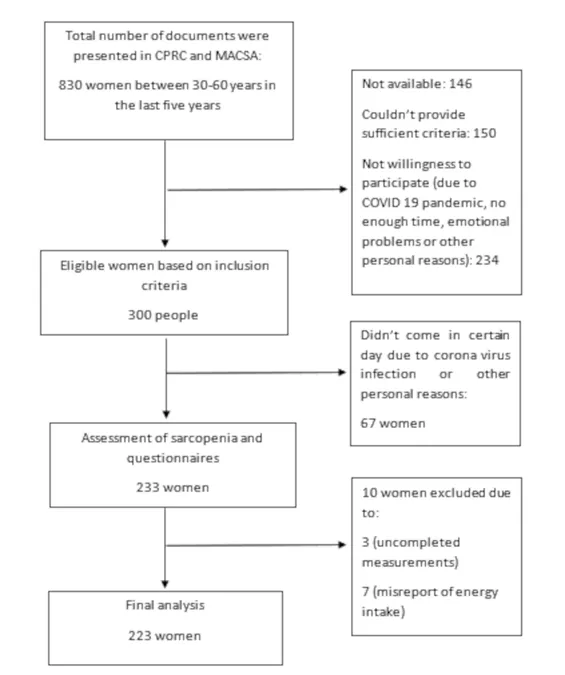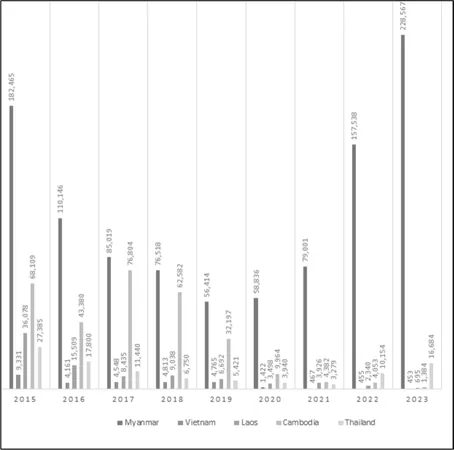
Uncovering the Scary Link Between Diet and Muscle Weakness in Breast Cancer Survivors
2025-01-09
Author: Li
Introduction
A groundbreaking study from Iran has revealed a potential risk of sarcopenia—a condition characterized by muscle loss and weakness—in breast cancer survivors (BCSs) who consume a diet with a higher dietary inflammatory index (DII). Sarcopenia is increasingly recognized as a serious condition affecting approximately 50% of individuals over the age of 80, highlighting the need for awareness among cancer survivors who are often overlooked in discussions about muscle health.
Inflammation and Sarcopenia
Recent evidence suggests that inflammation plays a significant role in the development of sarcopenia. Factors like aging, health status, dietary habits, and lifestyle choices can lead to increased muscle wasting. Inflammation disrupts normal protein turnover in the body, exacerbating the risk of muscle loss—a concern that can be particularly pronounced in those undergoing cancer treatments such as chemotherapy.
Dietary Inflammatory Index (DII)
The importance of diet is underscored in the new research, which identifies the DII as an influential metric. A higher DII score indicates a more pro-inflammatory diet, which has previously been linked not only to increased risk of sarcopenia but also to chronic diseases including cardiovascular issues and metabolic syndrome. A study involving older Australians subtly hinted that lower DII scores could correlate with better muscle function and mass—pointing to the potential need for dietary interventions.
Research Findings in Iranian BCSs
In Iranian BCSs, the study bridged the gap by examining the relationship between DII and sarcopenia specifically in this group. Utilizing survey data from 223 breast cancer survivors aged 30 to 60, the research aimed to unravel how dietary inflammation might affect physical function and muscle strength post-cancer treatment. The results unveiled alarming trends: women within the highest DII quartile often faced lower muscle mass, decreased handgrip strength, and signs of potential sarcopenia compared to those with a more anti-inflammatory diet.
Implications for Nutritional Guidance
The implications are profound: with roughly 57% of participants showing signs of possible sarcopenia, the results highlight an urgent call for tailored nutritional guidance among breast cancer survivors to mitigate the risk of muscle loss and improve quality of life. In particular, it was noted that higher protein intake, along with vitamins and healthy fats, could counteract the adverse effects of a pro-inflammatory diet.
Consequences of Muscle Loss
Moreover, it’s crucial to recognize that muscle loss can have severe repercussions beyond physical appearance. Inadequate muscle mass is associated with higher rates of falls, fractures, mortality, and an overall decline in quality of life. The study advocates for an integrated approach that includes physical activity and nutrient-dense foods tailored to individual needs as effective strategies against muscle deterioration.
Conclusion
The relationship between diet and health outcomes could not be clearer. This pioneering research adds to a growing body of evidence that underscores the relevance of dietary patterns in recovering from cancer and maintaining long-term health. Future investigations are likely to expand these findings to broader populations, exploring dietary impacts across various chronic diseases, while also emphasizing the need for comprehensive dietary assessments and interventions in clinical settings. Activating awareness in both healthcare providers and patients about the power of nutrition could be a game-changer in the fight against sarcopenia, particularly for the vulnerable population of breast cancer survivors. In a world where health loses out to convenience, let’s not overlook the potential lurking in our diets. A simple shift could not only safeguard muscle health, but enhance quality of life post-cancer—proving that food truly is medicine. Are you ready to rethink your plate?



 Brasil (PT)
Brasil (PT)
 Canada (EN)
Canada (EN)
 Chile (ES)
Chile (ES)
 Česko (CS)
Česko (CS)
 대한민국 (KO)
대한민국 (KO)
 España (ES)
España (ES)
 France (FR)
France (FR)
 Hong Kong (EN)
Hong Kong (EN)
 Italia (IT)
Italia (IT)
 日本 (JA)
日本 (JA)
 Magyarország (HU)
Magyarország (HU)
 Norge (NO)
Norge (NO)
 Polska (PL)
Polska (PL)
 Schweiz (DE)
Schweiz (DE)
 Singapore (EN)
Singapore (EN)
 Sverige (SV)
Sverige (SV)
 Suomi (FI)
Suomi (FI)
 Türkiye (TR)
Türkiye (TR)
 الإمارات العربية المتحدة (AR)
الإمارات العربية المتحدة (AR)